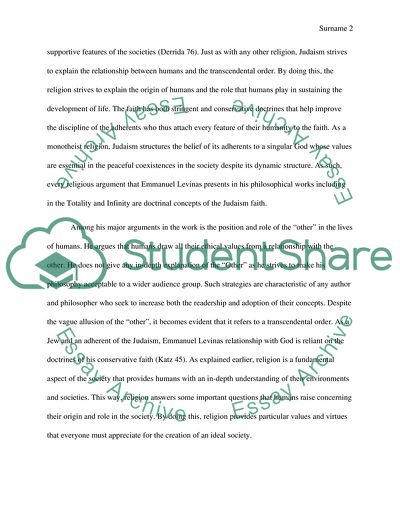Cite this document
(Separation of Judaism of Levinas From his Philosophical Work Essay Example | Topics and Well Written Essays - 1250 words, n.d.)
Separation of Judaism of Levinas From his Philosophical Work Essay Example | Topics and Well Written Essays - 1250 words. https://studentshare.org/philosophy/1826208-can-one-separate-levinass-judaism-from-his-philosophical-work
Separation of Judaism of Levinas From his Philosophical Work Essay Example | Topics and Well Written Essays - 1250 words. https://studentshare.org/philosophy/1826208-can-one-separate-levinass-judaism-from-his-philosophical-work
(Separation of Judaism of Levinas From His Philosophical Work Essay Example | Topics and Well Written Essays - 1250 Words)
Separation of Judaism of Levinas From His Philosophical Work Essay Example | Topics and Well Written Essays - 1250 Words. https://studentshare.org/philosophy/1826208-can-one-separate-levinass-judaism-from-his-philosophical-work.
Separation of Judaism of Levinas From His Philosophical Work Essay Example | Topics and Well Written Essays - 1250 Words. https://studentshare.org/philosophy/1826208-can-one-separate-levinass-judaism-from-his-philosophical-work.
“Separation of Judaism of Levinas From His Philosophical Work Essay Example | Topics and Well Written Essays - 1250 Words”. https://studentshare.org/philosophy/1826208-can-one-separate-levinass-judaism-from-his-philosophical-work.


